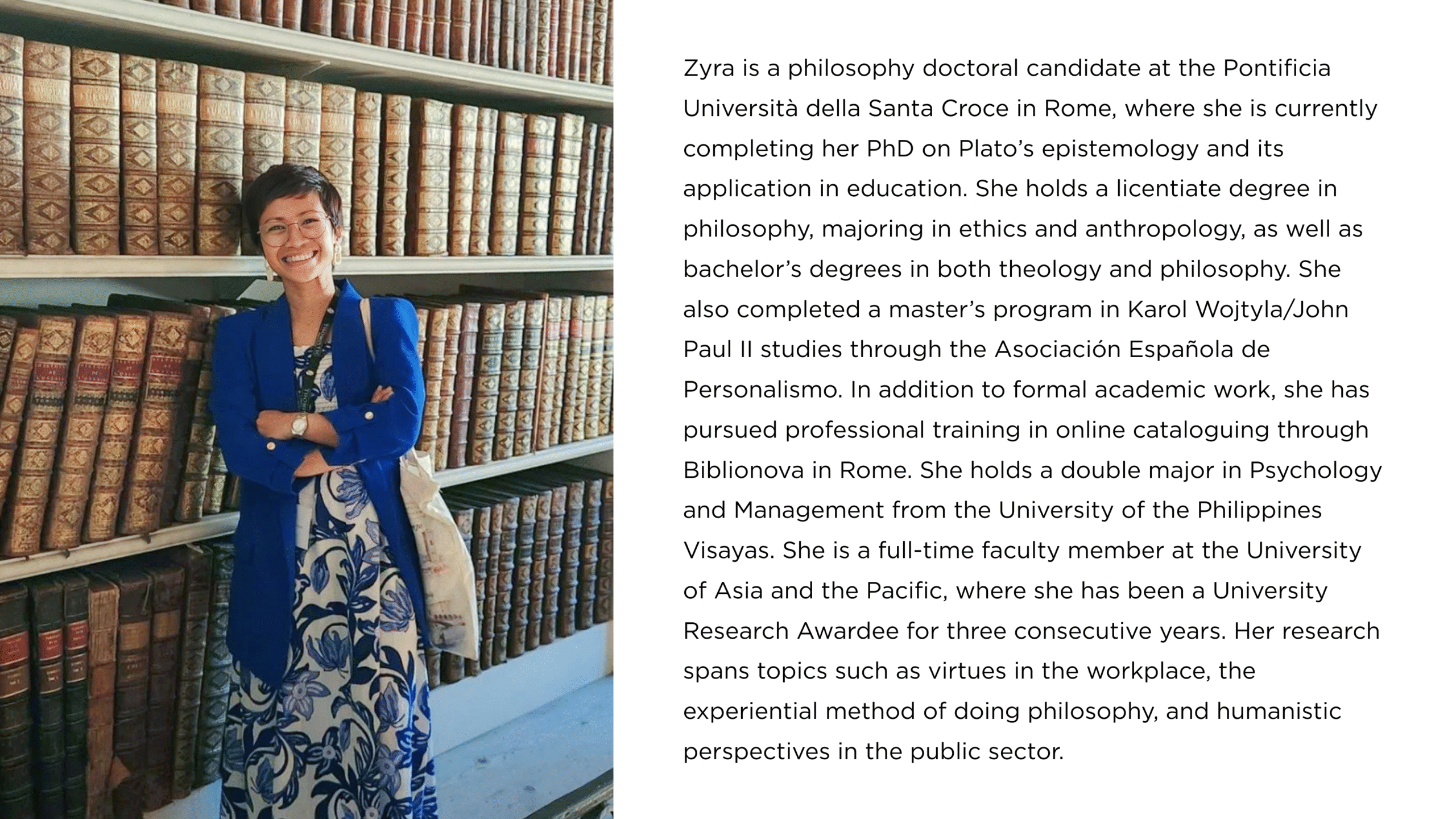Action Research
The Classroom as a Communio Personarum: Applying Wojtyla’s Personalist Philosophy to Teacher-Student Engagement at UA&P
Ms. Zyra Lentija, CAS-Philosophy
Among the younger students at the University of Asia and the Pacific, a concerning trend is the increasing disinterest in learning. While it may be tempting to attribute this to the students’ lack of motivation, it is equally plausible, if not more so, that the relationship between teachers and students is not always at an optimal level. In an ideal scenario, the goals and aspirations of both teachers and students should align, making them co-creators of each other’s success. However, this is often not the case, leading to a disconnection that hampers the learning process.
Taking all caution to avoid generalizations, we often hear students complaining about how certain teachers are “strict,” “unkind,” and others (Yoke, 2018). However, among teachers, we also hear comments about how sure students are perceived as being “lazy,” “indifferent,” and so on (Kapasa et al., 2015). This possibility of disjunction between teacher and student batters against the harmony expected in and demanded of classroom dynamics.
A promising perspective that could prevent the disruption of teaching-learning dynamics and bring education to its proper end—the perfection of the human person—is the personalist conception of Karol Wojtyła, applied to the disposition of, first, the teacher, and hopefully, next, the students. A personalist disposition on the part of both teacher and students can shape their attitude inside and outside the classroom, where both parties see each other as subjects and objects of love before anything else.
The proposed study, which aims to examine the students’ perspectives on a person-centered approach in teaching-learning dynamics, not only explores its personal and communal impact but also identifies its strengths and weaknesses. This study is unique in that it addresses the absence of studies and experimentation exploring the impact of the said approach on the University of Asia and the Pacific’s stakeholders. Furthermore, the study will incorporate a research-based strategy for an enhanced, supportive, and collaborative student learning path, thereby making a significant contribution to the existing body of knowledge in this area.

